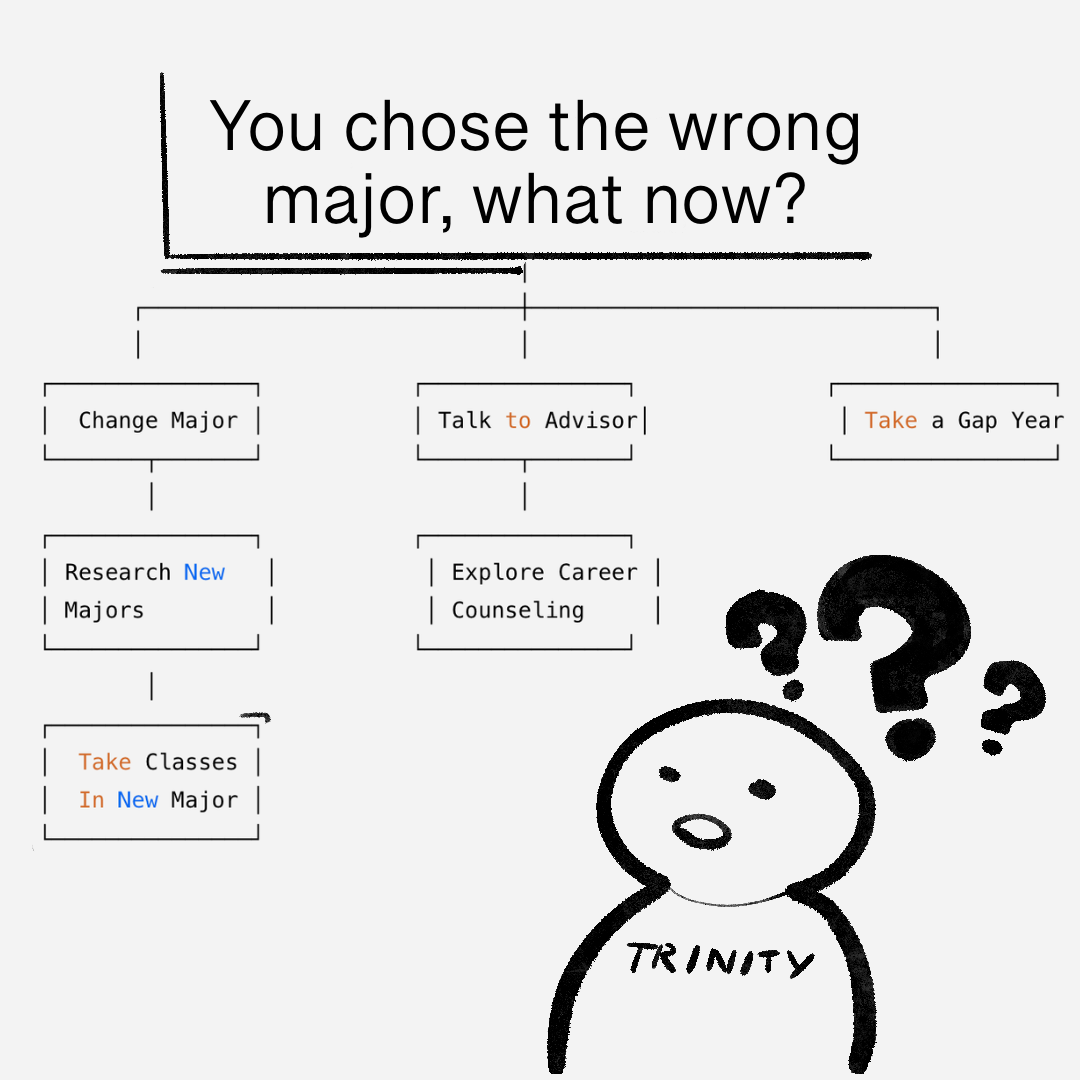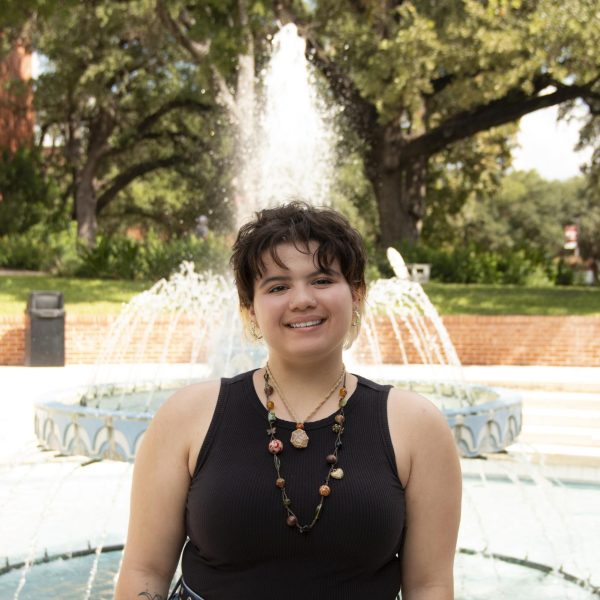If you’re feeling stuck in a subject you’re unsure about, many resources are available on campus to help you redirect and flourish.
There are certainly students who have already decided to switch to a new subject once they realize they are not as happy or comfortable as they could be. Ridge Holder, sophomore math major, committed to Trinity University to pursue a physics major.
After a semester in college, he found that the majority of the content in his physics classes was not as interesting to him as the math was, so he decided to pursue more math classes. Since he made this decision as a first-year, Holder said that he did not need to involve many on-campus resources and that the process of switching was not extremely difficult. However, Holder emphasized the importance of double-checking whether previously earned credits will transfer over to your new major’s department by contacting the department head.
“Go ahead and try it, regardless of what happens. You shouldn’t be at a point where you are really late. Your junior year is probably too late to change, but even up until sophomore year, go ahead and give it a shot,” Holder said. “It’s worth [it] to do something you like doing [rather] than to do something you don’t.”
If you find yourself in need of support, you can consult the Academic Advising committee in Elizabeth Huth Coates Library. Currently, this committee is staffed by Lapétra Bowman, head of academic advising, Jennifer Reese, assistant director of academic advising, and five academic advisors: Catherine Terrace, Michael Leach, Regina Romero, Katie Welch and Alexis von Biedenfeld.
“I think there are two different types of students who are thinking of pivoting out of the major. … The student who knows for sure. They’ve come to consciousness. They’re ready for it. They’re excited,” Bowman said. “You have the other student who has had some glimpses, has known for a while, but is afraid of making the wrong decision, thinking it’s too late.”
Bowman, as well as the other advisors, said that one of the first steps to either declaring or changing your major is running a degree audit and consulting the graduation requirements. Additionally, the Office of Academic Advising is a place to ask questions or express concerns, even if they’re not fully formed.
“I do think sometimes there is maybe a sense of anxiety. They feel like maybe they can’t come and ask questions because they haven’t formulated the questions yet, or particularly those undecided students who truly don’t know what the next step might look like but know that their current path isn’t quite fitting their goals,” Welch said. “I think there are a lot of resources for students like that.”
Outside of the Office of Academic Advising is the Center of Experiential Learning and Career Services (CELCS), where students can go and ask more general questions about what career they might pursue to find a major that fits well. Additionally, faculty in their respective departments often have information on the university’s majors, and von Biedenfeld said that Academic Advising works closely with these departments to ensure that students are connected.
“What I have found with declared students who pivot out [is] they knew from the beginning, they just didn’t give themselves permission,” Bowman said. “They were either trying to fulfill the dreams of a parent or family, not really fully conceptualizing what each major really means and how it translates into a career. The degree does not equal the job.”









